Champions of Change Blog
Successful Integration for New Americans
Posted by on June 26, 2015 at 1:34 PM EST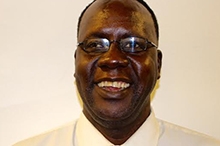
Gatluak Ter Thach is being honored as a White House Champion of Change for World Refugees.
Integration is complex. I think it is significant to recognize what it takes to create an integrated community. This task requires knowledge of processes and resources. Successful integration as part of a “New American Dream” is a role both hosts and New Americans should play. Even though resettlement agencies, both at the national and local levels, play their roles by providing refugees, pre- and post-resettlement services, successful integration is not realized in a few months or even years.
Lack of cultural knowledge as well as connections to important elements constrain integration. Knowledge of the English language is one of the most important things to gain integration. When I first arrived in this country, I didn’t know English. It was difficult for me to navigate the complex American systems. I pledged that I would do everything I could to change it. I decided to learn English well enough to enroll in a learning center in Nashville before I transferred to a two year college and then Tennessee State University where I graduated with a bachelor’s degree in computer science with minor in mathematics.
After I realized I needed to heed my family’s hopes that I settle down and get married, I thought of a little girl I met in Itang Refugee Camp in Ethiopia before I left. This girl was about eleven years old, but I promised to marry her when we both grew up. I provided her a small photo of me and told her not to marry anyone else unless she heard I died. I called and asked my brother in Ethiopia to find out more about where she was. I asked him to look for the girl who used to come through our compound to fetch water. I reminded him that after she approached us with her sisters and friends, we asked her to give us her water, and she would give us her water and return to a river to fetch more. Because of her generosity, I started to call her “my future wife,” and all of our family members and friends called her “Gatluak’s wife.”
My brother got back to me with great news about the girl. After I spoke with her and her family, I decided to go to the camp in Ethiopia to marry her. In the spring of 2004, we were married in a traditional wedding in the refugee camp. I returned to the United States and petitioned for her to join me. After she landed in Nashville, I realized Sudanese women faced unusual challenges to integration. I knew my wife needed to learn English since I could envision how difficult our lives would be, especially if Kuoth Nhial (God of Heaven) blessed us with a child.
I thought of what to do to help her. I bought a whiteboard and put it in the front seating area in our apartment to teach her the ABCs. Before I knew it, ladies from the Sudanese community joined her. Some of women walked miles for the English lessons. My apartment wasn’t big enough for these women and their children. I started to ask some Sudanese friends, “Guys, we need to rent a place where women can learn English because they really need our help,” and that was the beginning of the Nashville International Center for Empowerment (NICE), formerly Sudanese Community and Women’s Service Center, which serves refugees and immigrants from 72 different countries through a variety of programs. My work is to ensure refugees and immigrants are successful integrated into their new community through economic, social and civic empowerments.
Dr. Gatluak Ter Thach is the President and CEO of the Nashville International Center for Empowerment.
Learn more aboutHow Do We Best Tell a Refugee Story?
Posted by on June 26, 2015 at 1:32 PM EST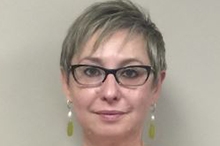
Nadia Kasvin is being honored as a White House Champion of Change for World Refugees.
I think of myself as an accomplished person, having made my way from Crimea to the United States more than 20 years ago. But even after living in this country for many years, I sometimes find myself wanting to say, “Just because I speak with an accent, does not mean I think with an accent. Look at me. See me. Listen to my ideas. I am not invisible.”
I have dedicated my life in this new country to helping refugees and immigrants be successful. That task requires navigating cultural norms, social customs, housing, transportation, health care, and many other necessities that are new to refugees. Yet sometimes my greatest hurdle is changing local attitudes toward the people I serve. Many have never met someone born in another country. They may not know our plight, our hard work ethic, our family story or our struggle to succeed in our new country. But once our stories are known and our desire for independence is understood, barriers disappear and our similarities trump any differences. That’s why our organization, US Together, celebrates the life of every refugee from initial hardship to accomplishment.
These stories are inspirational. There are so many to tell -- like the young woman from Democratic Republic of Congo who made her way here after a life pierced with gender-based violence. She overcame her personally tragic past and opened her own business within a year of arrival to the United States. Or the story of a refugee from Bhutan who opened the first Nepali restaurant in his new adopted city, or the engineer from Ukraine who went on to create his own IT firm. Or my own story, one that starts as a refugee from Ukraine who co-founded a non-profit organization helping refugees and immigrants. Our entrepreneurial model is unique, utilizing our interpretive services as additional earned income in several cities, employing the very refugees that we work to resettle.
Not many people fully appreciate the economic impact of new Americans. In Columbus, it is substantial. But to prove this point we need more than anecdotal stories. All of us working in Refugee Resettlement would love to have the research staff to track changes in our refugees’ employment and income status. We would like to be able to tell you how many refugees open their own business, and how many of our children go to college, and what professions they choose. Rarely do agencies like ours have the capacity for such an extensive follow up. But I have heard enough stories to know the numbers would impress. How can we best communicate our struggle, integration and success? Maybe there are other ways for an immigrant with an accent to be heard. I invite everybody to participate in this discussion. Let me know your ideas.
Nadia Kasvin is a co-founder and director of US Together, Inc., www.ustogether.us, a statewide mutual assistance and resettlement organization from Ohio, dedicated to providing a host of resettlement and integration services for refugees and immigrants from all over the world.
Learn more aboutBuilding Bridges for Refugees from Burma
Posted by on June 26, 2015 at 1:07 PM EST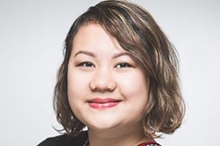
Mone Aye is being honored as a White House Champion of Change for World Refugees.
I was born in a camp for refugees from Burma, located in Thailand, and lived there until I was 19. In 2007, when finally given the opportunity to, my family applied to come to the United States and was accepted. We moved to Iowa, as do many refugees from Burma, and, finding it to be the perfect place for our family to settle down, we’ve made it our home ever since. Living in a new country with a new culture and having to start our lives over again has been challenging for us. When we first arrived, we didn’t know much English, so even getting to doctors’ appointments was difficult. There were services available to us, but, with cultural and linguistic barriers, we didn’t know how to access them.
In 2011, I co-founded the Ethnic Minorities of Burma Advocacy and Resource Center (EMBARC) along with 5 other ethnic community members: Mu Law, Ree Reh, Ro Sang, Thway Kaw Paw, and Henny Ohr, our Executive Director. We wanted to combine the efforts of the ethnic minority members living in Des Moines to achieve a better quality of life. Although EMBARC has dedicated staff, volunteerism is essential to the sustainability of the organization. Members of the Board, primarily refugees from Burma, volunteer their time to assist newcomers and provide direction to the EMBARC administration. They are inspired by their common goal of helping refugees succeed. Other refugees provide critical support to newcomers through activities coordinated by EMBARC, such as its Refugee Navigator and AmeriCorps Refugee RISE programs. These programs are designed to empower those they seek to help by providing them with resources to create self-sustaining, community-based support systems.
I have served as the board president for the ethnic community-based organization (ECBO), EMBARC, since its formation. From the initial community meeting in 2011, EMBARC has obtained 501(c)3 status, and received a significant federal grant from the U.S. Department of Health and Human Services and Administration for Children and Families. EMBARC continues the practice of supporting the oppressed and helping refugees from Burma succeed. It has programs to address current needs and to determine any new initiatives that may be needed. EMBARC understands the needs of the refugee community; we understand their resources—both tangible and intangible—and encourage and model success and independence, while showing compassion in leading folks to resources.
In 2014, I became a United States citizen. As an individual that was born displaced, I personally consider my citizenship to be one of my greatest accomplishments. In 2015, I passed the last of my HiSET (GED) exams and am looking forward to earning a college degree. I have a family, a job that serves my community (Bilingual Outreach Worker for Des Moines Public Schools), I teach English classes on Saturdays, and do whatever it takes to ensure the safety and comfort of my community members as a board member of EMBARC.
Mone Aye was instrumental in establishing the Ethnic Minorities of Burma Advocacy and Resource Center (EMBARC), a non-profit created by and for refugees from Burma in Iowa.
Learn more aboutHelping Refugees Thrive, not just Survive
Posted by on June 26, 2015 at 12:50 PM EST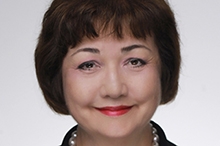
Anna Crosslin is being honored as a White House Champion of Change for World Refugees.
According to the United Nations High Commissioner for Refugees, the world is presently facing the most serious displacement crisis on record. Nearly 60 million people are residing outside their homeland or are internally displaced. Much of the dramatic growth is attributable to the Syrian crisis.
In recent years, approximately 70,000 refugees have been resettled annually in America with 600 sponsored to St. Louis by my organization, the International Institute of St. Louis (IISTL). While some relocate to other communities after arrival, St. Louis has also benefited from secondary migration of refugees from other U.S. cities, sometimes in significant numbers, like Bosnian refugees in the past two decades.
Resettling refugees is a win-win for the refugees, themselves, and for communities which welcome them. Refugees are offered a safe haven and a chance to begin again in a more secure environment. Cities like St. Louis benefit from a source of new population and entrepreneurs, both imperatives for success in today’s economy.
Offering refugees a safe haven in America is merely the first step. An array of easily accessible transitional services is essential for timely and effective integration. For 37 years, I have led the International Institute of St. Louis, working to ease the transition of immigrants and refugees. IISTL is St. Louis’ Welcome Center, serving 7,500 immigrants and refugees annually from 80 countries.
In addition to serving as Missouri’s largest refugee resettlement program, IISTL is also St. Louis’ largest site for English classes with 1,300 students as well as St. Louis’ immigrant employment center with 500 job placements annually. IISTL programs offer micro-lending and financial education. In all, IISTL has helped start or expand more than 600 refugee-owned businesses since 1999 with a positive economic impact of $160 million.
We do not have all the answers, nor are services perfect at IISTL. However, I have a couple of observations. First and foremost, the one-stop service approach we use in St. Louis has eased the access of refugees to core AND supplemental services. And language classes are more easily accessible.
Second, we cannot effectively resettle refugees if we, the thought leaders in the field, do not educate our communities about inclusive immigrant integration. We must work to encourage our elected officials, corporate leaders, and faith communities to engage newcomers in culturally and linguistically appropriate ways. It is essential that we create welcoming communities which include numerous local residents who appreciate newcomers and actively engage in integrating them into community life.
To that end I have worked with area leaders to found and operate the St. Louis Mosaic Project. Mosaic is a nationally recognized multi-sector led immigration attraction initiative affiliated with Welcoming America. The initiative aims to make St. Louis the “…fastest growing major metro for immigrants by 2020.” Mosaic is our immigrant attraction mechanism; IISTL is the retention component. Together both are building a stronger more vibrant community for all, new arrivals and long-time residents alike.
Born in Tokyo and raised in America, I am uniquely aware of the challenges that language and culture present to refugee newcomers. As a Japanese-American, I grew up with a foot in two cultures, in two worlds. My American-born father was an Air Force linguist; my mom was a Japanese national who struggled to learn English and achieve U.S. Citizenship. Widowed early, Mom, out of necessity, became a restaurateur, meanwhile raising four children, all of whom are college graduates. Mom, with help, embraced the American Dream, and refugees today can continue to do so as well…with the right array of supportive services at the right time.
Anna Crosslin has served as President and CEO of the International Institute of St. Louis (IISTL) for nearly 37 years.
Learn more aboutA Life and Death Decision
Posted by on June 26, 2015 at 12:45 PM EST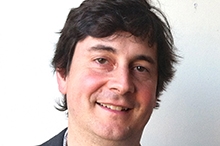
Sasha Chanoff is being honored as a White House Champion of Change for World Refugees.
In the past two decades of work with the U.S. Refugee Resettlement Program, there is one situation that stands out, a life and death decision point in my work that changed me and opened the doors to starting RefugePoint.
In February of 2000, I was part of a small U.S.-funded rescue team that went into the Congo to evacuate people who were being massacred there. Our mission was to get out 112 survivors who were stuck in a safe haven outside Congo’s capital, Kinshasa. My boss David at the International Organization for Migration, where I worked at the time, had overseen six months of evacuations that had flown out nearly 2,000 people who would all eventually come to the U.S. For this final evacuation flight, David told me that under no circumstances could we include anyone else beyond the 112 – doing so would jeopardize the mission due to the complexities of operating in a country at war.
When my colleague Sheikha, my operations partner on the mission, and I arrived in the safe haven, we took photographs and biographical data details for the 112 people to create our flight manifest. Then, a man working in the safe haven pointed to a large, 20 x 20 tent in the compound and told us we needed to take a look at the new arrivals in there. They were not on our list, but Sheikha and I went in anyway.
As we stepped through the tent door, it was as if time stood still for moment. There were 32 widows and orphans huddled together. They all looked emaciated and traumatized. The man who brought us in told us that these people had been in a prison camp where many of their family members had been executed. Sheikha leaned over to a little girl holding a doll and asked, what’s your doll’s name? Suddenly the doll’s eyes popped open and we realized it was a tiny baby who looked more dead than alive.
That night Sheikha told me we had to try and take them. I argued that we couldn’t, that we needed to stick with the program and not put the others at greater risk. I wondered, could I live with myself if we left the widows and orphans there and they were killed? I didn’t think so. But could I live with myself if we tried to take them and failed to get everyone out, as David had warned? It was an impossible situation. Sheikha finally convinced me to try, and David agreed as long as the U.S. Embassy was on board. They were.
We managed to get everyone to the airport on the final evacuation day, but on the tarmac the Congolese government officials began scrutinizing our list and the photographs and stopped us from boarding the widows and orphans. For a few tense minutes it looked like we wouldn’t get anyone out. They finally let us board everyone and fly out.
Later all those evacuees resettled to the United States. I’ve watched over the past fifteen years as they’ve rebuilt their lives, joined the work force, married and had children, gone to college, and become U.S. citizens.
That experience in the Congo opened my eyes to refugees who were off the radar and yet needed resettlement as a life-saving solution, people like the Sudanese Lost Girls in Kakuma camp who were overlooked during the Lost Boys resettlement, or refugees who had fled to urban slum areas after attacks in refugee camps. This is what inspired me to start RefugePoint, so we could reach other refugees in life-threatening situations who have slipped through the safety nets and disappeared into the cracks in the system. For me it all goes back to that seminal decision point, which changed how I think and act.
Sasha Chanoff is the founder and executive director of RefugePoint, an organization that finds lasting solutions for the world’s most vulnerable refugees.
Learn more aboutRefugees Are Survivors and Strivers
Posted by on June 26, 2015 at 12:35 PM EST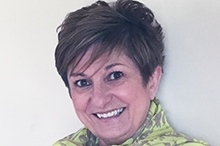
Zeljka Krvavica is being honored as a White House Champion of Change for World Refugees.
I have often been asked about the highlights of my work with refugees. There are many. However, one stands out. Several years ago, a young Karen refugee couple named their first born Zeljka. A newborn in some ethnic groups in Burma is named after the things or people that are precious and important to the family. It was one of the most joyful experiences of my life and work.
I came to the United States as a refugee from Bosnia and Herzegovina in 1993 and, since then, I have dedicated my life to serving some of the most vulnerable new Iowans. Through my professional work with the Iowa Bureau of Refugee Services I have helped many refugee families lift their heads a bit higher. I have found my life purpose in serving refugees through my daily work as a Refugee Specialist, but also through volunteering with Des Moines Public Schools as a Bosnian interpreter and outreach worker; through "Voices of Bosnian Women" - an organization that helps victims of family violence; through the Iowa Interpreters and Translators Association; through acting as a cultural ambassador for CultureAll - a nonprofit organization that exposes Iowans to other world cultures; and through serving as UNHCR United States Refugee Congress Delegate representing the State of Iowa.
For the past twenty two years I have been privileged to serve refugees from Europe, Africa and Asia. All of them, no matter where they come from and what their education levels, economic status, racial or cultural backgrounds are, have something in common - a great sense of loss! Loss of their homes, families, jobs, belongings, dignity. Fortunately, many refugees manage to successfully adjust to their new life. They manage to come full circle.
Being recognized as a White House Champion of Change is a very humbling experience. I am deeply grateful for being recognized in this manner. Sharing it with some of my clients gives me the utmost contentment and joy:
- My Eritrean client, a single mother of four whose husband was brutally murdered in the war. She made a brave decision to come to America for the brighter future of her children. Utilizing various services that the State of Iowa offers to refugees, she started attending English classes, enrolled her children in school, got a job and is now helping other Eritrean refugees;
- My Karen client who survived terrible atrocities in a refugee camp in Thailand, managed to overcome numerous life threatening barriers to come to Des Moines in the middle of winter, only to be challenged with another barrier: learning how to walk in winter boots on ice and snow;
- My nineteen year old Bhutanese client who came from a refugee camp in Nepal eager to become a teacher, but had to put it on hold in order to take care of his mentally disabled mother;
- My Iraqi client, a famous playwright who has been working nightshifts at a factory daydreaming of mastering English language well enough to write a play about Iraqi refugees in Iowa.
I wish there is a better word for grateful. I am so blessed that I have had all of my refugee clients in my life. They taught me to always have a positive outlook on life and to cherish all the miracles in the world.
I am forever changed.
Zeljka Krvavica is a refugee from Bosnia and Herzegovina working as a Refuge Case Manager/ Promise Jobs Counselor with the State of Iowa’s Bureau of Refugee Service.
Learn more about Immigration
- &lsaquo previous
- 1
- 2
- 3
- 4
- 5
- 6
- 7
- 8
- 9
- …
- next &rsaquo
White House Blogs
- The White House Blog
- Middle Class Task Force
- Council of Economic Advisers
- Council on Environmental Quality
- Council on Women and Girls
- Office of Intergovernmental Affairs
- Office of Management and Budget
- Office of Public Engagement
- Office of Science & Tech Policy
- Office of Urban Affairs
- Open Government
- Faith and Neighborhood Partnerships
- Social Innovation and Civic Participation
- US Trade Representative
- Office National Drug Control Policy
categories
- AIDS Policy
- Alaska
- Blueprint for an America Built to Last
- Budget
- Civil Rights
- Defense
- Disabilities
- Economy
- Education
- Energy and Environment
- Equal Pay
- Ethics
- Faith Based
- Fiscal Responsibility
- Foreign Policy
- Grab Bag
- Health Care
- Homeland Security
- Immigration
- Innovation Fellows
- Inside the White House
- Middle Class Security
- Open Government
- Poverty
- Rural
- Seniors and Social Security
- Service
- Social Innovation
- State of the Union
- Taxes
- Technology
- Urban Policy
- Veterans
- Violence Prevention
- White House Internships
- Women
- Working Families
- Additional Issues

